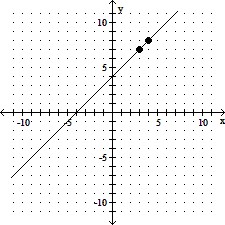Solve the problem.According to relativity theory, an observer who measures the duration of an event, such as the decay of an unstable subatomic particle, will obtain a reading that is affected by any motion of the observer relative to the location of the event. The time,  measured by an observer moving at a speed of v relative to the location of the event will be larger than the time, ?to, measured by an observer who is not in relative motion. This phenomenon is described by the equation
measured by an observer moving at a speed of v relative to the location of the event will be larger than the time, ?to, measured by an observer who is not in relative motion. This phenomenon is described by the equation  where c is the speed of light. If
where c is the speed of light. If
src="https://sciemce.com/media/4/ppg__text0427190932__f1q14g3.jpg" alt="" style="vertical-align: -4.0px;" /> compute  using the first four nonzero terms of the series expansion for
using the first four nonzero terms of the series expansion for 
A. 1.02058
B. 1.08062
C. 1.04062
D. 1.02062
Answer: D
Mathematics
src="https://sciemce.com/media/4/ppg__text0427190932__f1q14g3.jpg" alt="" style="vertical-align: -4.0px;" /> compute  using the first four nonzero terms of the series expansion for
using the first four nonzero terms of the series expansion for 
A. 1.02058
B. 1.08062
C. 1.04062
D. 1.02062
Answer: D
You might also like to view...
Use the ratio test to determine if the series converges or diverges.
A. Converges B. Diverges
Find the product of the complex number and its conjugate.3 + i
A. 45 B. 3 C. 15 D. -27
Solve the system by graphing on a calculator. Round to the nearest hundredth if necessary.y =  x2 + y2 = 5.7
x2 + y2 = 5.7
A. {(-1.84, 1.52), (1.50, 1.86)} B. {(-1.50, -1.86), (1.84, -1.52)} C. {(-1.84, -1.52), (1.50, -1.86)} D. {(-1.50, 1.86), (1.84, 1.52)}
Find the equation of the graph. Write the equation in slope-intercept form.
A. y = x + 3 B. y = x - 4 C. y = x + 4 D. y = -x - 1